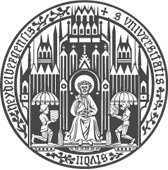
Knowledge Acquisition and Inference for Complex NLP Tasks
Kursbeschreibung
| Studiengang | Modulkürzel | Leistungs- bewertung |
|---|---|---|
| BA-2010 | AS-CL | 8 LP |
| Master | SS-CL, SS-TAC, SS-FAL |
8 LP |
| Dozenten/-innen | Anette Frank |
| Veranstaltungsart | Hauptseminar |
| Erster Termin | 27.10.2016 |
| Zeit und Ort | Do, 11:15–12:45, INF 346 / SR 10 (SR) |
| Commitment-Frist | tbd. |
Leistungsnachweis
Modalitäten des Scheinerwerbs
- Regelmäßige und aktive Teilnahme
- Referat
- Projekt oder Hausarbeit
The seminar can also be chosen as a Forschungsmodul (consultation requested).
» Here you find the course schedule and materials
Inhalt
Current information extraction techniques are able to extract and fill knowledge bases with facts about the world. However, factual knowledge is not sufficient to model deeper understanding of text, as required in tasks such as reading comprehension, decision support (e.g. medical assistance) or advanced human-machine interaction.
An important type of knowledge required for such tasks is world knowledge ('common sense', or 'background knowledge'), e.g. that cars are used for transportation, that they drive on streets, and can reach high speed provided certain conditions are met. Such knowledge is difficult to acquire automatically, but systems need to apply such knowledge to make predictions in context (e.g. to conclude that under normal conditions you can or cannot reach the next town in a certain amount of time).
Current research strives to develop new methods that jointly address the problem of constructing knowledge sources for factual and inferential knowledge to support reasoning in various of these scenarios.
Recently proposed methods and topics include:
- acquisition of common sense knowledge from natural language text
- mapping natural language to logical forms or knowledge bases (DB, graphs, or ontologies)
- modeling logical semantics and entailment using ontologies, distributional methods or neural networks
- evaluation data sets and methods for complex NLP tasks (e.g. Winograd schema challenge, reading comprehension, or cloze tasks for predicting or explaining actions)
Depending on interests of participants, presentation and discussion of papers can be complemented with practical sessions for studying evaluation data sets, to better understand the required knowledge sources and inference capabilities.
Literatur
- Angeli and Manning 2014: NaturalLI: Natural Logic Inference for Common Sense Reasoning. Proceedings of EMNLP.
- Mostafazadeh et al. 2016: A Corpus and Evaluation Framework for Deeper Understanding of Commonsense Stories. Proceedings of NAACL.
- Winograd Schema Challenge: pdf
- Singh, Push, et al. 2002: Open Mind Common Sense: Knowledge acquisition from the general public. Springer Berlin Heidelberg: pdf


